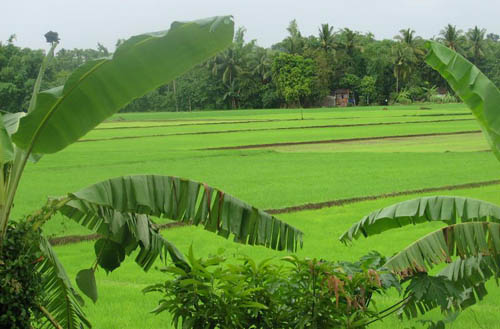Hunger crisis worsens, food system broken: Oxfam
June 1, 2011 12:17 am
LONDON (Reuters): Food prices could double in the next 20 years and demand in 2050 will be 70 percent higher than now, UK charity Oxfam said on Tuesday, warning of worsening hunger as the global food economy stumbles close to breakdown.
“The food system is pretty well bust in the world,” Oxfam Chief Executive Barbara Stocking said, announcing the launch of the Grow campaign as 925 million people go hungry every day.
“All the signs are that the number of people going hungry is going up,” Stocking said.
Hunger was increasing due to rising food price inflation and oil price hikes, scrambles for land and water, and creeping climate change.
Food prices are forecast to increase by something in the range of 70 to 90 percent by 2030 before taking into account the effects of climate change, which would roughly double price rises again, Oxfam said.
“Now we have entered an age of growing crisis, of shock piled upon shock: vertiginous food price spikes and oil price hikes, devastating weather events, financial meltdowns and global contagion,” Oxfam said in a report.
Entitled “Growing a Better Future: Food Justice in a Resource-Constrained World,” the report said: “The scale of the challenge is unprecedented, but so is the prize: a sustainable future in which everyone has enough to eat.”
Oxfam believes one way to tame food price inflation is to limit speculation in agricultural commodity futures markets. It also opposed support for using food as a feedstock for biofuels.
“Financial speculation must be regulated, and support dismantled for biofuels that displace food,” it said.
Stocking said she favored the introduction by regulators of position limits in agricultural commodities futures trading, noting that financial speculation aggravated price volatility.
The report said: “The vast imbalance in public investment in agriculture must be righted, redirecting the billions now being plowed into unsustainable industrial farming in rich countries toward meeting the needs of small-scale food producers in developing countries.”
The report said the failure of the food system flowed from failures of government to regulate and to invest, which meant that companies, interest groups and elites had been able to plunder resources.
“Now the major powers, the old and the new, must cooperate, not compete, to share resources, build resilience, and tackle climate change,” it said.
“The economic crisis means that we have moved decisively beyond the era of the G8, when a few rich country governments tried to craft global solutions by and for themselves.
“The governments of poorer nations must also have a seat at the table, for they are on the front lines of climate change, where many of the battles — over land, water, and food — are being fought.”












